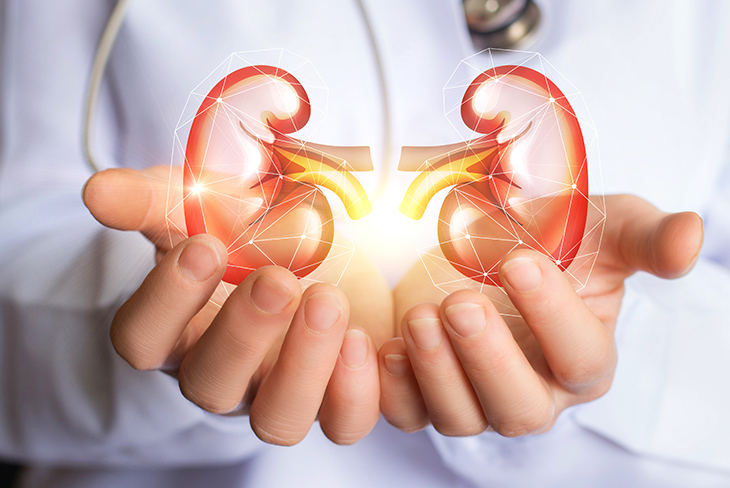Kidney damage: A silent attack

Up to 10% of the world’s population is affected by chronic kidney disease (CKD) in some way. This is how you can protect yourself from what can be a fatal condition
Ten thousand South African men, women and children die of kidney failure each year, according to the National Kidney Foundation of South Africa. These are largely viewed as potentially preventable deaths (70–80%).
The prevalence and preventability of kidney damage is due to how hard it is to detect. Sufferers often don’t experience symptoms, even with as much as 90% loss of kidney function.
If not detected, CKD, defined as decreased kidney function for three months or longer, usually becomes worse silently and ultimately leads to end-stage renal disease (ESRD), when your kidneys fail completely. At this point, because kidney damage is irreversible, the patient will need either a kidney transplant or dialysis for the rest of their life.
What causes CKD?
CKD has many causes, including inherited diseases, infections and certain medications. However, diabetes and hypertension are two of the biggest culprits, and both are significant risk factors associated with obesity. Dr Nabeel Bapoo, a nephrologist at Life Vincent Pallotti Hospital, explains that this means obesity ultimately ‘accounts for about 70% of all cases of ESRD’.
This is a concern, as a 2014 study by the World Health Organization estimated that 25.6% of South Africans were obese. Thus, approximately one in four South Africans is at an increased risk of diabetes, hypertension and CKD.
Reduce your risk
Dr Bapoo’s advice to obese or overweight individuals is to lose weight. ‘There is good evidence to show obesity-related renal disease can be reversed in this manner. I would recommend healthy eating and exercise. It’s really simple advice, but that’s what’s required.’
Besides exercise and eating well, other ways to improve your kidney health include:
- Limiting your salt intake to 5–6g/one teaspoon per day
- Getting blood glucose tests frequently
- Monitoring your blood pressure regularly – a reading between 120/80 and 139/89 is considered as pre-hypertension and should be addressed by a medical practitioner
- Quitting smoking
- Avoiding the excessive use of non-steroidal anti-inflammatory and over-the-counter drugs
- Avoiding over-exercising or fad diets
Keep testing
‘As kidney disease is generally a silent killer, if you are at risk it is important to test for it annually,’ adds Dr Bapoo. Besides obesity, the following also put you at greater risk of CKD:
- Diabetes mellitus (type 1 or type 2 diabetes)
- HIV infection
- Hypertension (high blood pressure)
- Cardiovascular, cerebrovascular or peripheral vascular disease (such as a stroke or heart attack)
- Autoimmune diseases (such as lupus)
- Prior acute kidney injury
- Prior pre-eclampsia or eclampsia or HELLP syndrome
- Being over 60 years old
- A family history of kidney disease
The South African Renal Society recommends regular blood pressure measurement, blood glucose measurement, urine dipstick testing and estimation of GFR (glomerular filtration rate) to screen for kidney damage.
The good news is that if damage is detected early enough, it may be treatable. Medication and lifestyle changes can slow down, or even stop, further damage. And the earlier it is detected, the better your chances of receiving the appropriate treatment.
The information is shared on condition that readers will make their own determination, including seeking advice from a healthcare professional. E&OE. Life Healthcare Group Ltd does not accept any responsibility for any loss or damage suffered by the reader as a result of the information provided.

